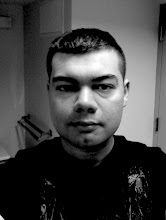Something I've been thinking a lot about this past year is this thing we call "God". Belief in God is something that I have maintained throughout my life, but if someone were to ask "do you believe in God," I don't think I could answer it with a simple 'yes' or 'no' as in times past. The reason being because usually what people seem to mean by that question is "do you believe in MY God?" and while my idea of God may resemble someone else's in some respects, it may be radically different in others.
There are so many different conceptions of God or gods and definitely many more than I think most people are consciously aware of. For a good percentage of people, at least in the western world, I don't think the idea of God goes much beyond the famous 'magical-bearded-man-in-the-clouds' concept (as depicted above from Monty Python and the Holy Grail) to which they either accept or reject. While it would be practically impossible to talk about all the different variations out there, suffice it is to say that "God" is almost a useless term unless you are in conversation with people that you are sure hold an identical or near identical concept with you. So, perhaps a question I could answer better would be "to which god concept do you believe in, if any?". Though even my answer to that would be extremely hazy, as the idea of God is more of something my brain likes to wrestle with, as opposed to being a solid and unchanging belief. Belief in that sense is relatively dead to me, anyway.
In a nutshell, I have come to perceive the word "God" as a kind of blanket category for a level of reality connecting all things that we have yet to fully understand or define, because (like all spiritual things) it pierces the limits of language that are applied to it. Yet, we have no other choice but to apply language and symbols to it if we hope to discuss it or make meaning out of it...hence the existence of all religions.
It seems highly unlikely to me that with all the different religions out there that a single one of them has just so happened to have properly and completely understood what and who God is, while all the rest are totally incorrect. A more reasonable view, to my mind, would be to admit that possibly all religions, philosophies, etc., may each understand certain things about the divine while misunderstanding other things. Everyone has a few pieces of the puzzle, but no one has the complete picture. And as the world becomes ever more connected through various media, I think a lot more people are actually coming to a similar conclusion concerning God and beliefs in general.
Now, as to what parts one group is right about and what parts another is wrong about is, obviously, a very debatable thing. Yet, I think the simple admission that no one is fully right and no one is fully wrong about the God question is an enormous step in the right direction. That admission allows us all to be teachers as well as learners when it comes to understanding this mysterious, mythical, yet real part of our universe. I would even be as bold to say that being open to this concept of God is a step towards world peace, as it would undoubtedly foster religious and cultural understanding.

